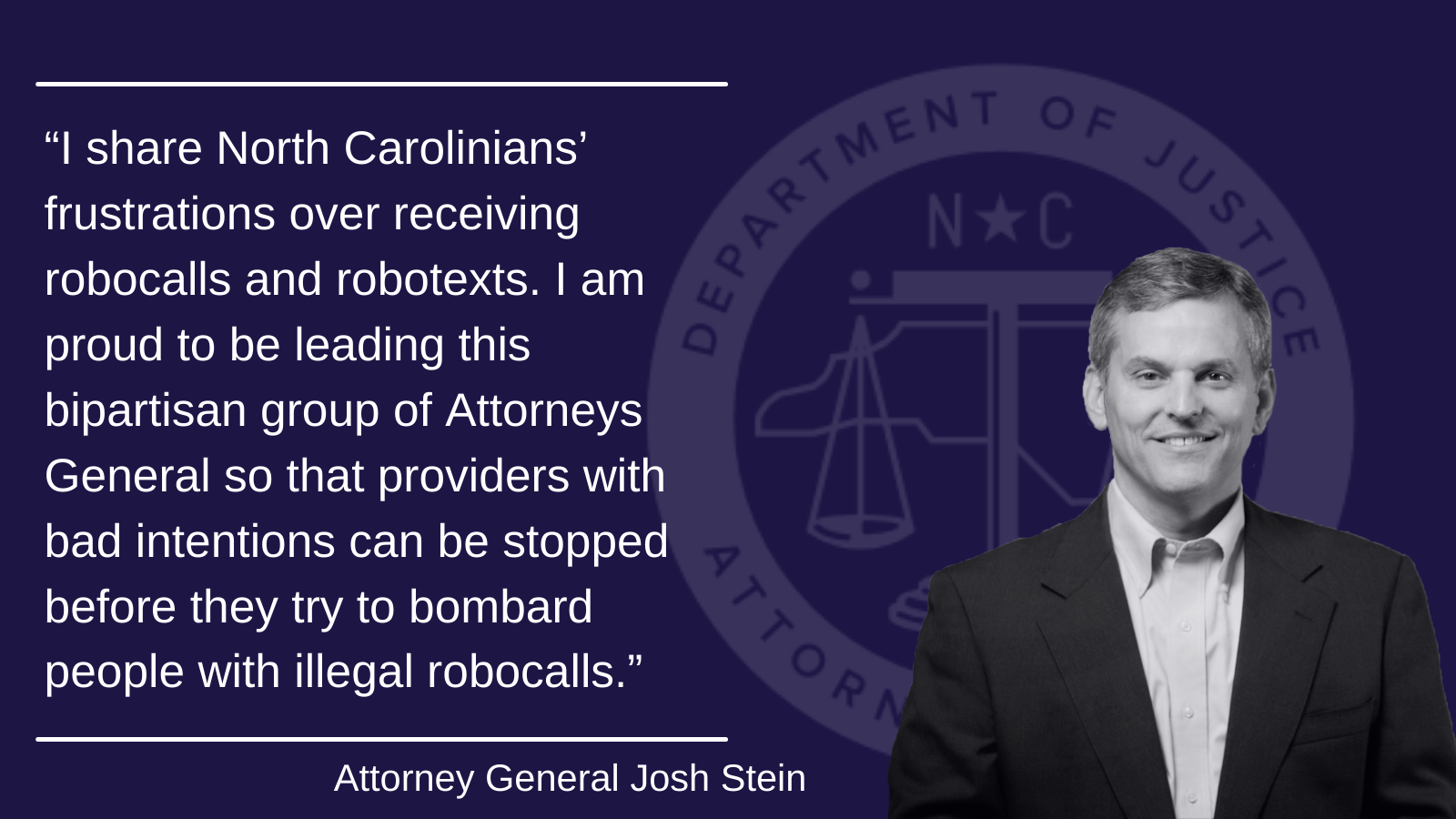
For Immediate Release:
Wednesday, November 13, 2024
Contact:
Nazneen Ahmed (919) 716-0060
(RALEIGH) Attorney General Josh Stein today led a bipartisan coalition of 46 other Attorneys General in calling on the Federal Communications Commission (FCC) to improve their Robocall Mitigation Database (RMD) and close what has effectively been an unmonitored loophole that bad actors exploit to access the U.S. telephone network.
“I share North Carolinians’ frustrations over receiving robocalls and robotexts,” said Attorney General Josh Stein. “I am proud to be leading this bipartisan group of Attorneys General so that providers with bad intentions can be stopped before they try to bombard people with illegal robocalls.”
Attorneys general are at the forefront of fighting to reduce illegal robocalls that plague Americans. But scammers continue to find new ways to bombard people with illegal robocalls and robotexts. Last year, our Consumer Protection Division received 3,281 complaints about robocalls, which was the top complaint received by the Division. In October of this year, Americans reported receiving more than 4.9 billion robocalls, averaging 15 calls per person a day.
Providers must register on the FCC’s database to operate as a voice service provider in the United States. However, since it went live in 2021, the database has done little to prevent bad actors from obtaining legitimate registrations to send illegal robocalls through the U.S. telephone network. Companies have submitted non-vetted information and voice service providers have faced no real consequences for filing inaccurate, false, misleading, or otherwise incomplete information.
The coalition of Attorneys General are calling on the FCC to strengthen the database so providers understand what information they need to submit and have deadlines to submit this information, validate the data that providers submit to flag inaccurate or misleading data, penalize providers for submitting false or inadequate information by preventing them from getting authorization to operate, and blocking non-compliant providers. If adopted, the proposed changes would make it harder for bad actors to gain access to the entire U.S. telephone network and would stop more illegal robocalls from reaching people in the United States.
Attorney General Stein is co-chair of the Anti-Robocall Litigation Task Force and has been committed to actively investigating and pursuing enforcement actions against entities in the robocall ecosystem that are identified as being responsible for significant volumes of illegal and fraudulent robocall traffic routed into and across the country.
Attorney General Stein is joined in sending this letter by the Attorneys General of Alabama, Alaska, Arizona, Arkansas, California, Colorado, Connecticut, Delaware, Florida, Hawaii, Illinois, Indiana, Iowa, Kentucky, Louisiana, Maine, Maryland, Massachusetts, Michigan, Minnesota, Mississippi, Nevada, New Hampshire, New Mexico, New York, North Dakota, Ohio, Oklahoma, Oregon, Pennsylvania, South Carolina, South Dakota, Tennessee, Utah, Vermont, Virginia, West Virginia, and the District of Columbia.
A copy of the letter is available here.
###
